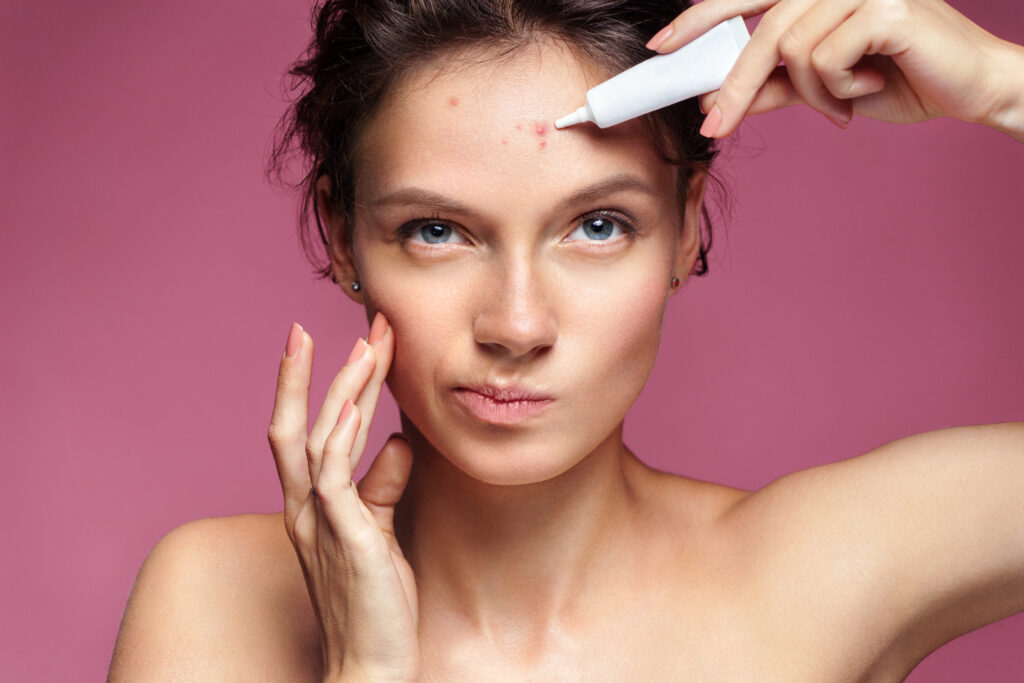One of the most common skin conditions that most people go through is acne. Acne is a skin condition that causes pimples on some parts of your body, but most especially on the face. Its types are blackheads, whiteheads, pimples, nodules, and cysts.
Acne is commonly experienced during puberty, but it can also occur at any age. It’s not really dangerous, but it can leave scars when mistreated. Having acne on your face can affect your self-esteem as sometimes, people relate it to untidiness.
But, what are the most common causes of acne? Does it tell you something about your body? This article will discuss the causes and their possible implications for your health.
Stress and Bacteria
Your forehead is the most common spot of acne. Breakouts on the forehead are caused by stress. Some people tend to deprive themselves of sleep or neglect their overall well-being due to their busy schedule and stress at work.
Given that, it will result in acne appearing on your forehead. To prevent these spots on your face, it’s important that you get quality sleep every night for at least seven to nine hours. You must also drink plenty of water, and wash your face from time to time to cleanse it from dirt. Most importantly, never sleep with your makeup still on your face.
Other causes of acne on the forehead are the use of hats or hair sticking on your face. Your hair can be a carrier of dirt, too, so it’s best to keep your hair from sticking to your face.
Hormonal Imbalance
Another common spot for acne is your chin. Chin acne can be caused by several reasons such as dirt or allergy, being on an exposed part of the face. Moreover, breakouts on the chin can mostly be caused by hormonal imbalance.
This hormonal imbalance usually occurs in women, especially when about to have their monthly period or during. This is why it’s very common for women to have acne all over when menstruating. To resolve or minimize this, opt for a regular sleeping schedule and a healthy diet to keep the hormones in check.
Respiratory System Issues and Poor Dental Hygiene
If you have acne on your cheek, it’s mostly associated with your respiratory system. On the lower cheek, it’s linked to poor dental hygiene.
For cheek acne, it’s recommended that you maintain clean air at home. When outside, wear surgical masks or a cloth face mask to protect your face from dust and polluted air. Make sure that the masks you wear to match your skin type and doesn’t result in skin allergies too. Things that regularly come in contact with your cheeks such as makeup brushes, pillowcases, or your cellphones must be clean.
Gastrointestinal Imbalances
There are some instances when you also get acne right between your eyebrows or your nose which is simply annoying, painful, and frustrating. These even appear at the wrong time, right when you have a big moment coming up.
Acne that’s characteristically placed in any of those areas can be linked to gastrointestinal imbalances. This could signify high blood pressure or liver dysfunction.
Alternatively, it can also be caused by food allergens. This is why experts recommend that you reduce your dairy and fast-food consumption as these kinds of food are not always healthy for you. Instead, eat more fruit and green leafy vegetables to enhance your face complexion.
Genetics or Hormonal Fluctuations
Some people tend to have no acne on any part of the face yet have it on their backs, arms, or thighs. In cases like these, it may be simply caused by genetics or hormonal fluctuations.
It’s inevitable how some people inherit this condition from their elders. Lifestyle is also a factor. Alternatively, it can also be caused by the type of clothes you wear as some can cause skin irritation and generate breakouts.
To prevent these unwanted breakouts on your body, it’s suggested that you wear clean clothes that are not too tight. Make sure the type of clothing matches your skin’s preference too. Moreover, be mindful of the lotion, soap, and other skin products that you’re using. Some of these products may contain pore-clogging ingredients, causing the breakout.
Conclusion
Medication and a healthy lifestyle must go hand-in-hand in managing acne. You can also consult your dermatologist to learn more. Now, the next time you experience a breakout, check which part of the body is affected to know the causes.

